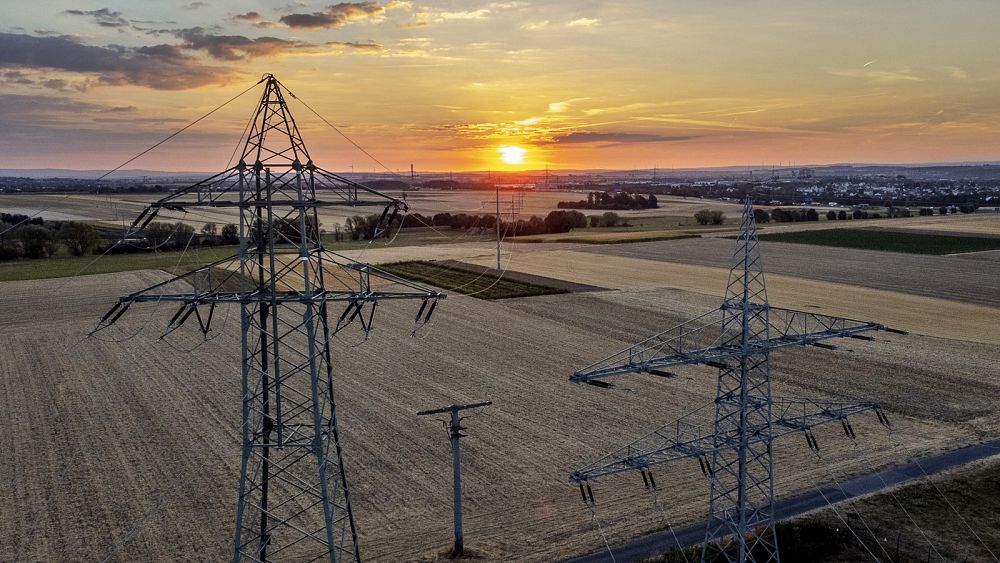The long-awaited reform of the European Union’s electricity market rejects fundamental change and instead bets on long-term contracts between suppliers and consumers, an arrangement that can help inject greater certainty into monthly bills and spur the much-needed investments in the renewable sector.
The plans, unveiled on Tuesday afternoon by the European Commission, are a direct response to the energy crisis, which last year pushed power prices to all-time highs, brought companies to the edge of bankruptcy and put millions of households under extreme financial stress.
Although prices have since then gone down, the scars from the crisis are still fresh and plenty of question marks persist over the bloc’s ability to cope with the next winter.
Brussels is now determined to add extra cushions to protect consumers from unpredictable price spikes and ensure domestic companies don’t lose their competitive edge on the global stage.
The energy crisis “exposed a number of shortcomings in the current system which needed to be addressed,” Kadri Simson, the European Commissioner for energy, said on Tuesday.
“The reforms will aim to make the energy bills of European consumers and companies more independent from the short-term market prices.”
Merit order untouched
The overhaul, however, is not as far-reaching as some countries, like France or Spain, would have liked and completely bypasses the contentious idea of “decoupling.”
In fact, the plans keep untouched the so-called merit order, the constitutional principle that has underpinned the EU’s liberalised electricity market for the past two decades.
Under the merit order, all electricity generators – including solar, wind, nuclear, coal and gas-fired plants – sell power according to their production costs. The bidding starts from the cheapest sources – the renewables – and finishes with the most expensive ones – usually gas.
Since the majority of EU countries still rely on gas to meet all their power demands, the final price of electricity is quite often set by gas, even if green sources also contribute to the total mix.
While the system had previously managed to increase transparency and stabilise prices, the dramatic events of 2022 threw the merit order into total disarray: skyrocketing gas fees had a brutally distorting effect on monthly bills, wiping out the economic benefits of green power.
This scenario can no longer be repeated, the Commission says, as the share of electricity produced by renewable sources is expected to grow from 37% in 2020 to over 65% by the end of the decade.
“The reform will not change the mechanics of price formation,” Simson said. “But these volatile, short-term price developments will no longer determine to a large extent consumer prices.”
Simson said the draft plans would “hopefully” be the last piece of legislation to tackle the energy crisis and urged the European Parliament to treat them as a “priority” and speed up their approval.
Contracts for differences
The European Commission is confident the merit order will soon regain its footing but admits households and companies need more certainty about their daily expenses.
The reform has therefore a strong focus on long-term electricity contracts between suppliers and clients, which can guarantee electricity prices will remain within an agreed-upon and predictable range even if things spiral out of control.
The Commission intends to promote the uptake of three types of contracts:
- Power Purchase Agreement (PPA): a private contract between a provider and a client, usually a company, that can last up to 15 years. It sets the terms for negotiated prices and supplies.
- Forward contract: a private contract between a provider and client, similar to a PPA but with a shorter duration of up to three years.
- Contract for Differences (CfD): a contract between a provider and the state that establishes a price range with minimum and maximum levels. If electricity prices fall below the range, the state compensates for the difference. But if the price exceeds the range, the state is entitled to capture the surplus revenues.
Although all these three contracts are already a possibility across the bloc, their use is very limited and varies wildly between member states.
Since the costs associated with renewables are largely concentrated in early production stages (for instance, building offshore wind farms), Brussels believes long-term contracts can provide investors with the necessary guarantees that their money will pay off and yield steady benefits.
The option of contract for differences will become mandatory for all new projects in renewable and nuclear energy that entail national subsidies, pending the Commission’s approval.
If gas prices shoot up and result in windfall profits for low-carbon generators, as was the case last year, EU governments will be legally required to redirect these extra gains to support households and companies alike.
Bram Claeys, a senior advisor at the Regulatory Assistance Project (RAP), a non-partisan organisation focused on the green transition, said contracts for differences could offer governments new sources of income but only in times of extreme prices.
“I don’t think it should be a goal to protect consumers against all price spikes. Only against really high ones. It’s important to have energy affordable to all and especially vulnerable consumers. But that doesn’t mean prices can’t fluctuate,” Claeys told Euronews.
“It’s important consumers adapt their electricity use accordingly, based on the signals prices send.”
Additionally, the reform includes a right to choose that will allow consumers to have multiple contracts –fixed-price and variable ones – at the same time for different purposes. Meanwhile, a right to share will encourage consumers to share self-generated renewable energy (for example, energy from solar panels installed on rooftops) within their own communities.
EU-wide crisis mechanism
In a more radical overture, the Commission proposes a new mechanism to declare an EU-wide crisis when electricity prices suffer drastic increases that are expected to continue for at least six months and wreak havoc on the “wider economy.”
If this EU-wide crisis is declared, member states will be allowed to artificially regulate retail tariffs for households and SMEs – an effective carte blanche for state intervention.
Although not part of Tuesday’s proposal, the Commission would like to turn the temporary measures of power savings approved last year into a permanent solution to rebalance supply and demand.
The measures introduced a mandatory 5% reduction target during peak electricity hours, when gas plays a bigger role in price-setting.
“This is not decided yet,” Simson said. “But addressing the gas peak hours really makes a difference and allows us to avoid excessive prices.”
Read the full article here






